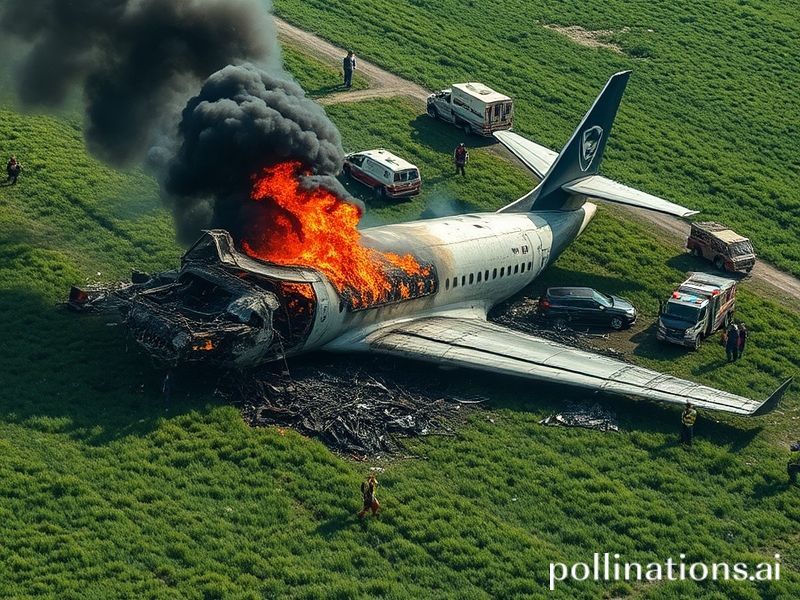When the Sky Falls: Why ‘Plane Crash Today’ Is Trending Globally
# **When the Sky Falls: Why “Plane Crash Today” Is Trending Globally**
Ah, the internet—where a single phrase can send the world into a collective panic faster than you can say, “Is it safe to fly today?” The term “plane crash today” has been trending globally, and it’s not just because people are suddenly obsessed with aviation disasters. No, there’s a mix of curiosity, fear, and a dash of internet culture at play here. Let’s break it down.
### **The Power of a Trending Phrase**
First, let’s address the elephant in the room: why is “plane crash today” trending? It’s not because there’s been a sudden spike in plane crashes (thank goodness). Instead, it’s a perfect storm of factors. Search engines and social media algorithms love phrases that spark curiosity or concern. When someone searches for “plane crash today,” the algorithm thinks, “Oh, this is important!” and starts pushing it to more people. It’s like the internet’s version of a game of telephone—except instead of “I like turtles,” we get “Is the sky falling?”
### **Cultural Context: Fear vs. Fascination**
Humans have a complicated relationship with plane crashes. On one hand, they’re terrifying—no one wants to think about the worst-case scenario when they’re 30,000 feet in the air. On the other hand, there’s a morbid curiosity. It’s the same reason people slow down to look at a car accident: we’re drawn to the spectacle, even if we don’t want to admit it.
This fascination isn’t new. Remember the days when “Mayday” was a trending topic on Twitter every time there was a minor incident? Or when “flight 232” became a meme after the tragic crash in 1989? The internet has a way of turning tragedy into a trending topic, whether we like it or not.
### **Social Impact: The Ripple Effect**
When “plane crash today” trends, it has a ripple effect. People start searching for more information, which leads to more articles, more social media posts, and more panic. It’s a feedback loop that can spiral out of control. And let’s be real—most of the time, there isn’t a plane crash. It’s just the internet being the internet.
But here’s the thing: the social impact isn’t all bad. It can raise awareness about aviation safety, spark discussions about mental health (because, let’s face it, flying can be anxiety-inducing), and even lead to better emergency preparedness. It’s a reminder that even in the age of memes and TikTok dances, the internet can still be a powerful tool for information and action.
### **Why This Topic Is Significant**
So, why does “plane crash today” matter? Because it’s a microcosm of how the internet works. It’s a blend of fear, curiosity, and the power of algorithms. It’s a reminder that we live in a world where information spreads faster than ever—and sometimes, that information isn’t always accurate.
It’s also a testament to the power of collective consciousness. When something trends, it’s not just a few people talking about it—it’s millions. And that collective attention can shape narratives, influence public opinion, and even drive change.
### **Conclusion: The Sky Isn’t Falling (Probably)**
In the end, “plane crash today” is a trending topic that’s more about the internet’s quirks than an actual crisis. It’s a reminder to stay informed, question the sources of our information, and maybe take a deep breath before panicking. Because, let’s be honest, the sky isn’t falling—it’s just the internet being dramatic.
So, the next time you see “plane crash today” trending, take a moment to think: Is this really happening, or is it just the internet doing its thing? Either way, it’s a fascinating glimpse into the digital world we live in.







